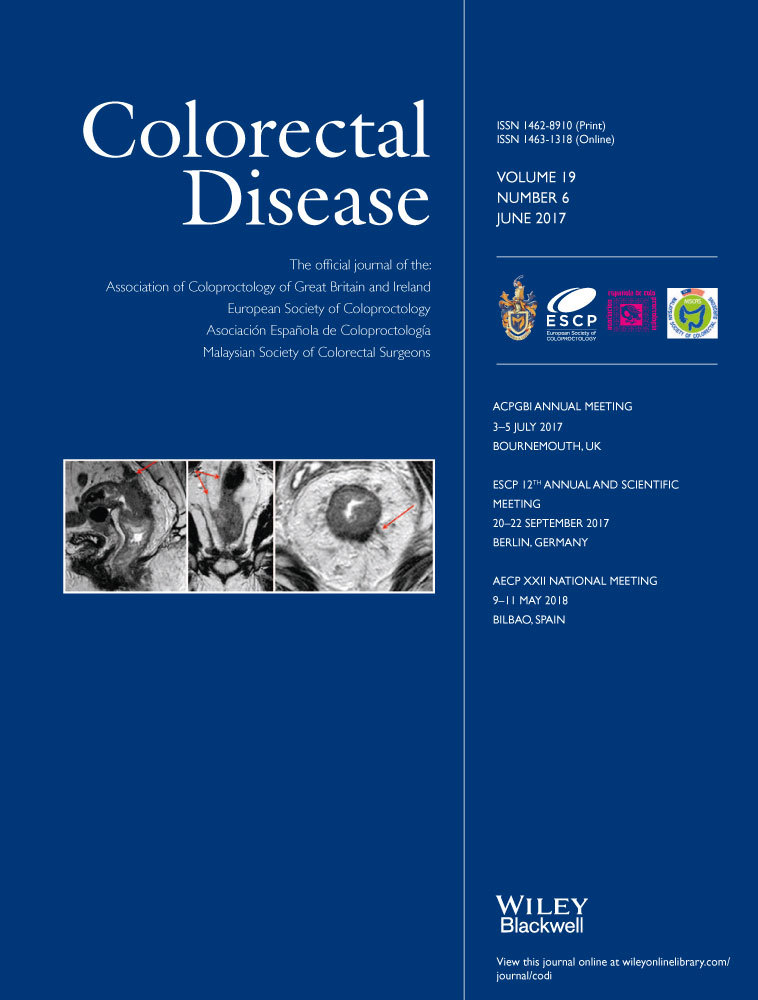A retrospective cohort study of the influence of lifestyle factors on the survival of patients undergoing surgery for colorectal cancer
Abstract
Aim
Several modifiable and nonmodifiable health-related behaviours are associated with the incidence of colorectal cancer (CRC), but there is little research on their association with survival. This work aimed to investigate possible relationships between modifiable behavioural factors and outcomes on a study cohort of CRC patients undergoing potentially curative surgery.
Method
A retrospective cohort study was carried out of patients diagnosed with nonmetastatic CRC residing in the NHS Greater Glasgow and Clyde area, UK and undergoing elective curative surgery (January 2011 to December 2012). Data were obtained from the Scottish Cancer Registry, National Scottish Death Records. Preoperative assessment of smoking, alcohol consumption, nurse-measured body mass index (BMI) and exercise levels were recorded, and patients were followed until death or censorship. Survival analysis was carried out and proportional hazards assumptions were assessed graphically using plots and were then formally tested using the PHTEST procedure in stata.
Result
Of the initial 527 patients, 181 (34%) satisfied the inclusion criteria. The total duration of follow-up was 480 person-years. At the preoperative assessment, 75% of patients were overweight or obese, 10.6% were current smokers, 13.1% recorded excess alcohol consumption and 8.5% had physical difficulty climbing stairs. Age, BMI, histopathological stage and physical capacity all independently affected survival (P < 0.05). Overweight patients [hazard ratio (HR) 2.81] and those who had difficulty climbing stairs (HR 3.31) had a significantly poorer survival.
Conclusion
This study found evidence that preoperative exercise capacity and BMI are important independent prognostic factors of survival in patients undergoing curative surgery for CRC.




